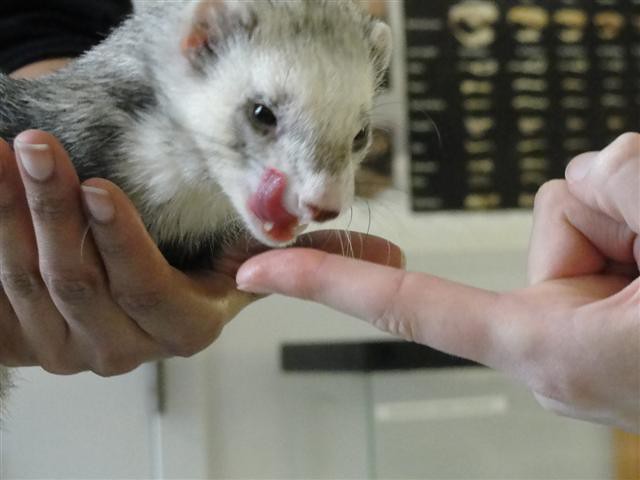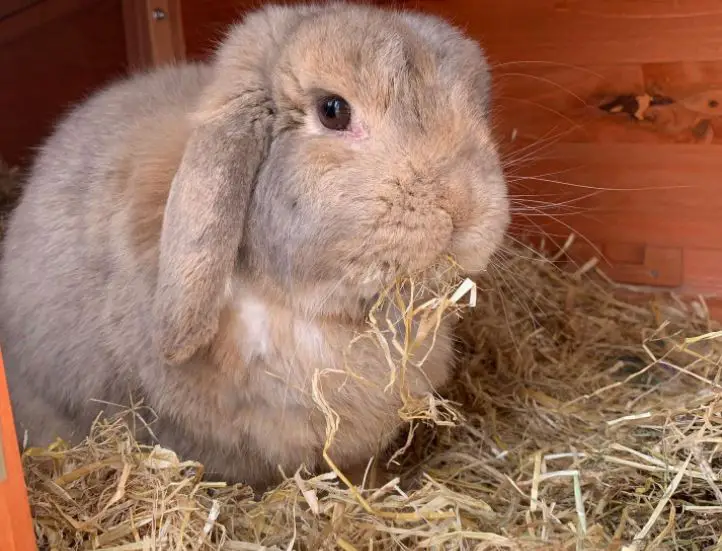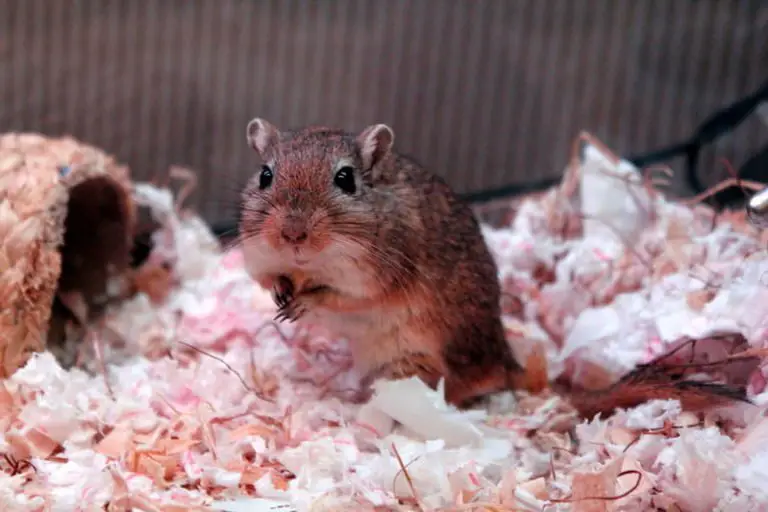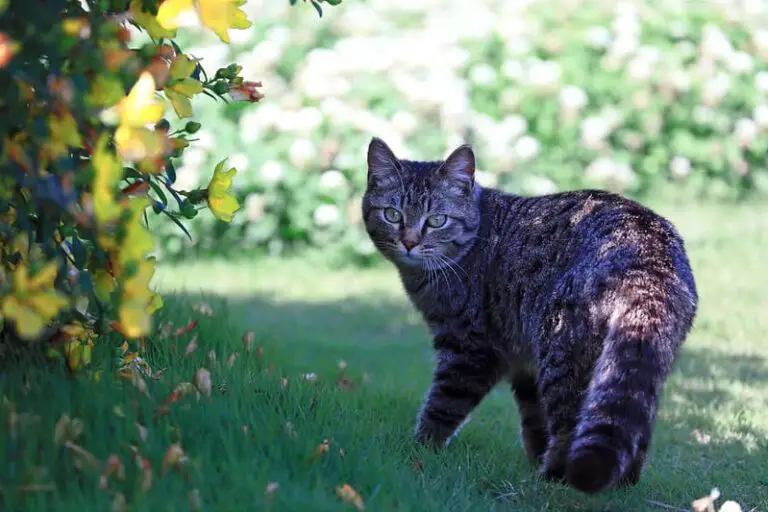Can Goats Eat Squash? (Solved)
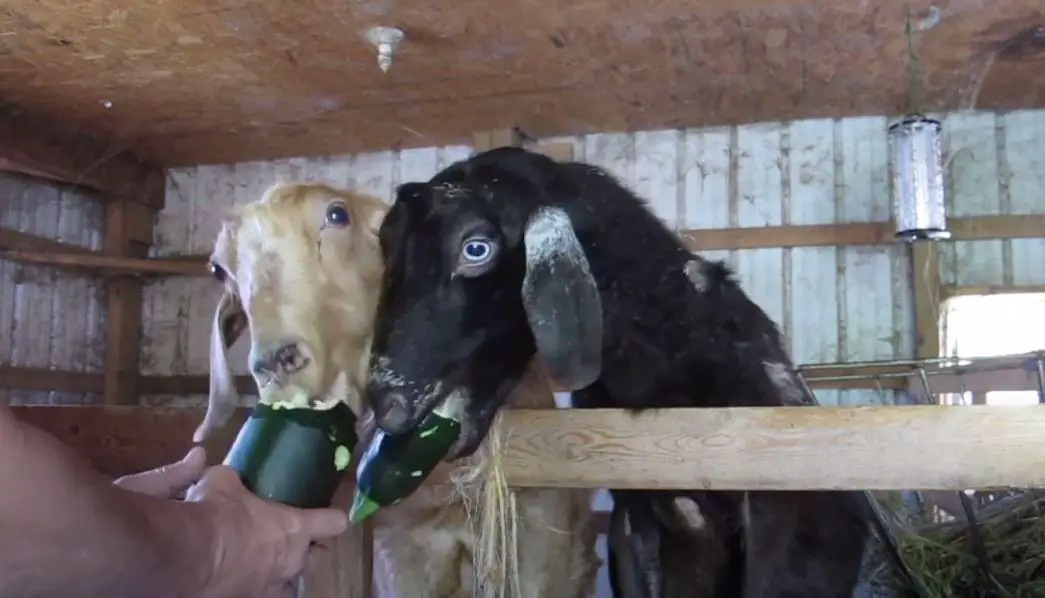
Can goats eat squash?
Goats usually love any kind of vegetable, but when it comes to raw vegetables that are considerably large in size and not very soft in consistency like squash, there are always some doubts due to the possible existence of a toxic compound existing in some classes of vegetables..
Squash is very similar to cucumber in shape and color, although there are different types, they are usually eaten raw and cooked, therefore it does not represent any danger of toxicity to feed a goat, However, certain precautions must also be taken, especially if the squash to be fed to the goat is organically harvested.
In recent years there have been numerous cases of poisoning by cucurbitacin, a toxin naturally generated in some tissues of the species of the family Cucurbitaceae as a means of defense against herbivores,
Not only the squashes susceptible to develop this substance, since a total of 760 species are registered in the very numerous family of the cucurbits, among whose most remarkable members we find the squash, the watermelon, the cucumber, the melon and the pumpkin.
On the positive side, a goat could benefit from the vitamins and minerals of squash, apart from strengthening its bones, squash is rich in calcium, potassium and contains a high amount of vitamin A.
The squash also has very few calories, almost none, 100 grams of zucchini have only 20 calories, contains almost no fat, and is rich in fiber and minerals.
Is squash poisonous to goats?
You could easily feed the raw squash to a goat. As we have mentioned, raw squash is generally safe to eat, even for us humans, but in some cases, it can be extremely bitter. In the case of squash with a very bitter taste, precautions must be taken. Below we explain the safety measures to be taken.
Curcubatacin could be lethal in case of products with high concentration, it has been recommended to have some caution with the vegetables that are susceptible to have this compound.
It is most appropriate to test a small amount of the squash before eating or feeding it to determine if there is a high concentration of curcubatacin, because curcubatacin is associated with an intense bitter taste.
Because of the very bitter taste in squash, it is an indicator that it contains a high content of cucurbits, compounds with toxic potential.
If you notice that the vegetable is much more bitter than usual, this could be a warning about the presence of high concentration of cucurbitacin and it would be wise not to feed it to your goats or eat it yourself.
Have several units of squash and try a little bit of each one to determine on average the natural flavor and to be able to distinguish a bitter excess, in case you find a too bitter squash you should discard it, and don’t worry, trying a little bit won’t hurt you.
Nevertheless, cucurbitacin poisoning is very unlikely in the varieties that you can find commercially.
Curcubatacin is a toxic substance developed naturally in some plants and vegetables as a defense mechanism, precisely to avoid being eaten by animals.
Over time producers have developed techniques and care to prevent or limit the development of this substance in zucchini, so it is recommended for safety, if you are going to feed the goats use commercially purchased squash.
The cucurbitacin concentration can increase in your own crops if the plants have not been watered enough or have been pollinated by insects that are abundant in the neighborhood.
Can goats eat cooked squash?
Goats can eat cooked squash with no problem, and one of the advantages of squash is that it maintains almost all of its properties after cooking, so goats could benefit equally from eating raw or cooked squash.
But equally, after all that has been explained, squash is safe to eat as long as it doesn’t contain large amounts of cucurbitacin, and by this I mean, that the fact of cooking a squash this substance is not going to disappear.
Curcubatacin is quite resistant to cooking and could remain in the squash even after it has been cooked.
Can a goat eat the peel of a squash?
There is no risk of toxicity to a goat from eating the squash, the squash peel is both nutritious and has a great deal of healthy fiber. In fact, most of the fiber provided by this vegetable is concentrated in its peel. The goat can eat the squash peel without any problem.
Also remember that the peel of the squash is a little hard, if you feed it to the goats mixed and chopped it would be easier to digest.
The only thing to keep in mind as a care measure is to wash the squash well, before giving it to the goat to eat. This will help to remove any traces of pesticides or bacterial contamination.
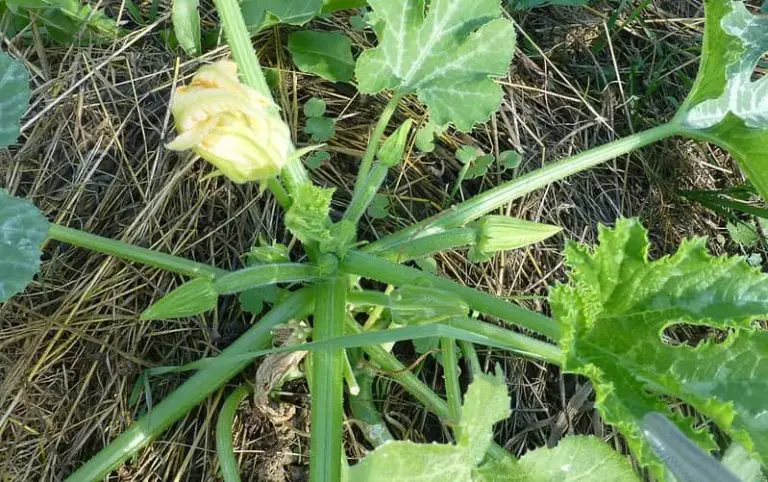
Can goats eat squash leaves?
The leaves of the squash are not toxic, even many people eat them as well as the flowers of the squash, but cooked, in its raw form the leaves of the squash have a rough and rusty texture, but the texture of the leaves is not really a problem for the goat to eat.
All the leaves, flowers, and fruits of the squash emerge from a base stem. The leaves can reach a diameter of more than 30 centimeters. They have a rough surface and, like most plants, they feel slightly thorny and rough.
Also, if your squash leaves have white, grayish or brown spots, it is most likely that the squash is suffering from powdery mildew or some other fungal disease.
Powdery mildew occurs mainly in hot, dry weather and appears as white spots covering the tops of the leaves. In this case, you should dispose of the leaves completely.


